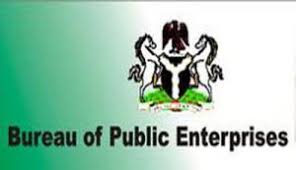In furtherance of its efforts aimed at ensuring post-privatisation survival and profitability of State Owned Enterprises (SOEs) in which the Federal Government had diluted a significant amount of its equity holdings, the Bureau of Public Enterprises (BPE), at the weekend unveiled plans to commence initial public offerings (IPOs) for some of the affected enterprises.
Some of the affected enterprises whose IPOs may be announced within the next 60 days are, Skyway Aviation Handling Company Limited (SAHCOL), 100 per cent owned by the Sifax Group, Indorama Eleme Petrochemicals Limited; and NICON Insurance Limited.
Giving this hint during a workshop organized by the Association of Business Editors in Nigeria (ABEN) in Abeokuta, Ogun State, the BPE’s Director, Development Institution and National Resources, Mr. Joe Anichebe, explained that under the plan, the IPO for the shares of the Nigerian Machine Tools (NMT), Osogbo, Osun State, would be announced next year.
Anichebe pointed out that government had not offered the shares of some of the privatised SOEs or list them on the stock exchange years after their privatization in view of the risks associated with doing so, especially when many of the privatised SOEs were not operating profitably.
He clarified: “You know that the first rule to listing on the Exchange is that you have to be profitable, and we don’t want to risk the money of poor Nigerians by offering IPOs for those companies when they are not being profitable.”
While recalling the experiences in the privatization of the SOEs so far, the BPE’s Director said that between 1975 and 1998, Government spent about N13 trillion to set up and maintain about 590 Public enterprises out of which 160 were established to make profit.
According to him, the profit turned out to be tiny, translating to about a half of one per cent and that all the government’s funds were tied up in businesses that supported just 420,000 employees out of a population of then about 120 million.
Anichebe pointed out that the enterprises absorbed over half of the money that Nigeria earned from its huge oil sales in the early 1970s as well as over half of the money Nigeria owed as international debt.
He clarified further: “But the real price we have paid for the poor performance of our state enterprises is not one measured in billions—or trillions—of wasted Naira. The real price is in terms of the services that Nigerian citizens never received and the investments that never took place. These were denied to Nigerian citizens because the money that could have paid for them was swallowed up by our State Enterprises.
“Imagine what the huge sums of money poured into our state enterprises could have achieved, if they had been properly directed? How many schools and hospitals could they have built? How many teachers or health workers could they have funded? How many people could have been given proper anti-retroviral treatment? Ask yourself what might have been? Looking forwards—what may still be?”, he added.
Despite the initial challenges, the Director noted that the privatisation story up to 1999 recorded many successes but that it was a ‘soft’ start, focusing largely on oil marketing companies, cement companies, banks, and insurance companies, and not on the big state utilities which had the greatest need for reforms.
Describing privatization as a controversial adventure given the experiences of the BPE so far, Anichebe who also noted that the mindless mismanagement of public enterprises is inexcusable, canvassed the need to always ensure that the process of privatization transactions remained open, legal and transparent in order to achieve the objectives of the programme.
He restated the commitment of the BPE management’s efforts to strengthen the openness and transparency of the BPE processes and operations so that the investors, the government and the general public will have confidence in what the Bureau is doing.
The BPE chief also charged the media, as key stakeholders in national development agenda, to sustain their collaboration with the Bureau through participative reporting of activities relating to the privatisation programme in the overall interest of the country’s development






